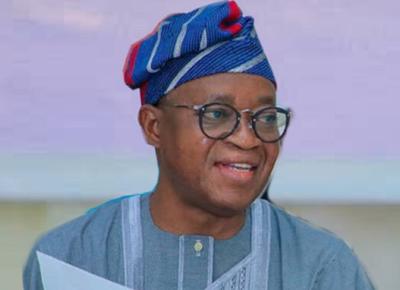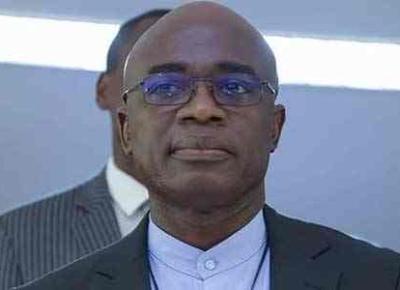Reshaping Nigeria’s student loans for inclusive access
In June 2023, President Bola Tinubu signed the Student Loan (Access to Higher Education) Act into law, marking an important step forward in the country’s approach to financing tertiary education. The initiative was designed to provide interest-free loans to students in higher institutions, thereby expanding access to education for financially disadvantaged youth.
However, nearly two years on, the scheme’s implementation remains burdened by challenges, prompting growing concern and debate among stakeholders. In response to criticism of the original law, the Federal Government repealed and re-enacted the Act in April 2024. The revised legislation established the Nigerian Education Loan Fund (NELFUND) as a corporate entity responsible for managing and disbursing the loans. Notably, the amended version eliminated restrictive eligibility criteria such as income thresholds and guarantor requirements.
It also extended the scheme’s coverage to include students enrolled in government-accredited vocational training centres. To streamline access, the application process was simplified, requiring only a valid National Identification Number (NIN) and Bank Verification Number (BVN). Hence, all submissions were made via the NELFUND portal.
Despite these improvements, the scheme has continued to attract criticism. One of its most vocal opponents is the Academic Staff Union of Universities (ASUU). In a recent interview with a national daily, Dr Mwolwus Jurbe, Chairman of ASUU’s University of Jos chapter, outlined the initiative as “fundamentally flawed”. He argued that the scheme was unlikely to benefit its target groups, especially students from low-income families. “The scheme is pushing education out of the reach of the common man,” he said. Jurbe said that, amid high unemployment rates and soaring tuition fees, expecting repayments from indigent students was unrealistic.
ASUU also raised alarms over reports that TETFund allocations might be redirected to fund NELFUND. The body warned that dismantling a functional funding mechanism in favour of an untested alternative could jeopardise the future of tertiary education in Nigeria. Meanwhile, the National Association of Nigerian Students (NANS), while generally supportive, has also expressed reservations. The association acknowledged the potential of the scheme to reduce dropout rates, but emphasised that the absence of scholarships or grants rendered it incomplete.
NANS President, Comrade Olushola Ladoja, condemned the alleged mismanagement of NELFUND, calling for the dismissal of implicated officials and the publication of the 51 tertiary institutions reportedly involved. Any vice-chancellor, rector or provost found culpable in the mismanagement of student loans must be removed from office. “Their actions sabotage the Federal Government’s effort to make education accessible to all,’’ Ladoja said. He urged Tinubu to probe the reported diversion of N71.2 billion and criticised NELFUND for excluding the national student leadership from key stakeholder engagements.
Additionally, NANS called on the EFCC and ICPC to investigate the matter and advocated for a five-year post-NYSC loan repayment grace period, citing the employment difficulties faced by many recent graduates. Civil society groups have also raised concerns. The Education Rights Campaign (ERC) described the initiative as “badly thought-out, ill-conceived and fundamentally unworkable”.
Hassan Soweto, National Coordinator of the ERC, lamented repeated delays in the loan rollout, calling it evidence of poor planning and political inertia. “It is a national embarrassment that almost a year after the law was signed, students are still waiting for funds,” he said. Worthy noting, trust in the scheme further eroded in August 2024 when it was revealed that no tertiary institution in the South-East had been included in the first phase of disbursements.
Reacting, the Concerned Igbo Stakeholders Forum (CISF), led by Chukwuma Okenwa, condemned the omission as a deliberate act of marginalisation. Okenwa argued that excluding an entire geopolitical zone from a national programme violated the federal character principle. Although NELFUND claimed South-East schools had failed to respond to verification notices, the CISF rejected this explanation, insisting that at least one compliant institution should have been selected.
Similarly, the Corporate Accountability and Public Participation Africa (CAPPA) expressed concern over NELFUND’s plan to limit eligibility to students in “high-demand” disciplines. Zikora Ibeh, CAPPA’s Senior Programme Manager, warned that the policy could marginalise students in the humanities, arts, and social sciences. “This approach risks deepening inequality by denying support to students whose fields may not be seen as immediately profitable but are crucial to national development,” she said.
Also, controversy followed the announcement that the EFCC had donated N50 billion in recovered funds to the loan scheme. A Legal expert, Nnaemeka Ejiofor, cautioned that while well-intentioned, the EFCC lacked constitutional authority to reallocate recovered public funds without National Assembly approval. “Such actions, no matter how well-meaning, set a dangerous precedent,” he warned. Meanwhile, fee hikes across federal and state universities have exacerbated the financial burden on students and their families.
In some cases, tuition fees have surged by as much as 1,000 percent. A University of Lagos student, Michelle Njemanze, shared that her tuition rose from N16,000 to N196,000 in a single academic session. For many, the student loan scheme remains a promise yet to be fulfilled. Although the Tinubu administration allocated N200 billion to the scheme in the 2024 budget and appointed banking executive Jim Ovia as chairman of the NELFUND board, disbursement delays continued well into May 2025.
In response to growing dissatisfaction, NELFUND recently announced a major overhaul of its application system. NELFUND Chief Executive Officer, Mr Akintunde Sawyerr, recently revealed that the agency was deploying a fully digitised, user-friendly platform to streamline the loan process and eliminate bureaucratic delays. “Education is a right, not a privilege; with this technology-driven model, we are establishing a transparent and efficient system that puts students first,” he said. Sawyerr added that the reforms aligned with Tinubu’s Renewed Hope Agenda, which prioritised educational access and youth empowerment.
According to him, more than 320,000 students had already benefited from the scheme, with thousands more undergoing verification as operations scale up. Looking ahead, NELFUND also plans to integrate its systems with institutional portals across the country. This collaboration aims to enable seamless data exchange, automate student record verification, and speed up loan processing.
While recent reforms are encouraging, experts insist that sustained political will, transparency, and inclusive policies are essential to realise the full potential of Nigeria’s student loan scheme. They agree that, in theory, the loan scheme offers a vital opportunity to democratise access to higher education in Nigeria. In practice, however, its rollout has been hindered by legal ambiguities, implementation delays, and regional inequities. If these challenges remain unresolved, experts warn, the scheme may end up widening the very educational gap it was intended to close.



































